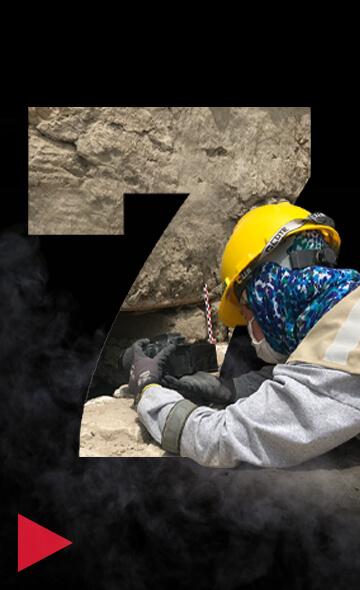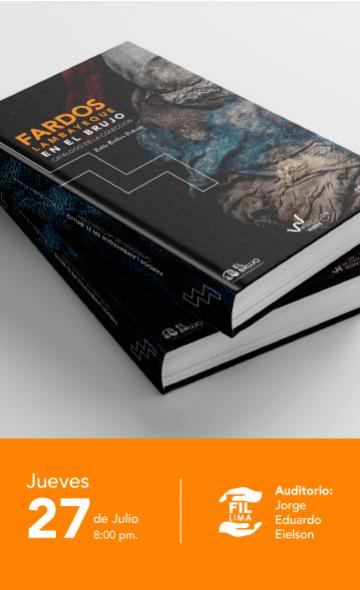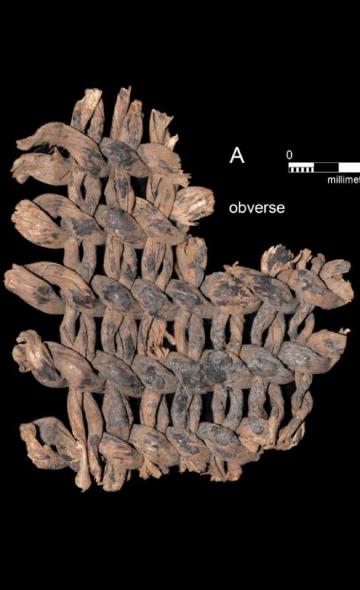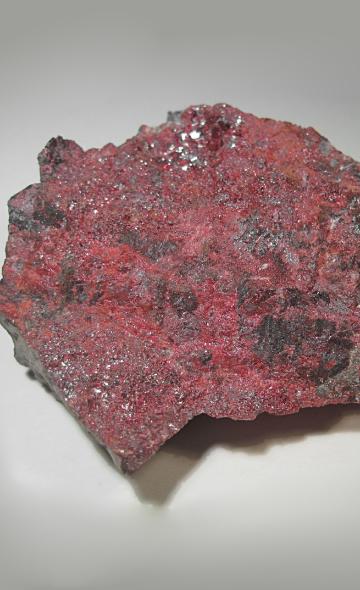- Visitors
- Researchers
- Students
- Community
- Information for the tourist
- Hours and fees
- How to get?
- Activities El Brujo
- Virtual tours
- Classic route
- Mystical route
- Specialized route
- Site museum
- Know the town
- Cultural Spaces
- Cao Museum
- Huaca Cao Viejo
- Huaca Prieta
- Huaca Cortada
- Ceremonial Well
- Walls
- Play at home
- Puzzle
- Trivia
- Memorize
- Crosswords
- Alphabet soup
- Crafts
- Pac-Man Moche
- Workshops and Inventory
- Micro-workshops
- Collections inventory
- News
- Researchers
- VII International Archeology Colloquium: one of the most anticipated events organized by the Wiese Foundation has ended
News
CategoriesSelect the category you want to see:
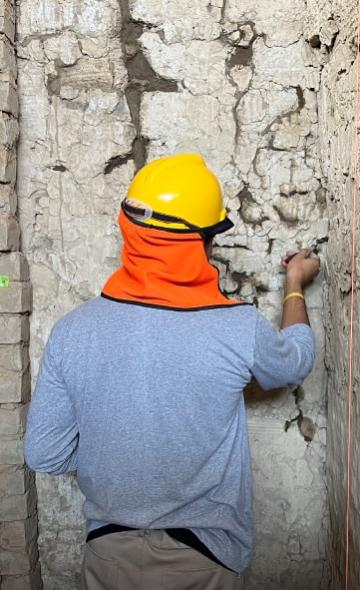
In 1990, the Wiese Foundation signed its first agreement with the Ministry of Culture of Peru, marking the beginning of ...
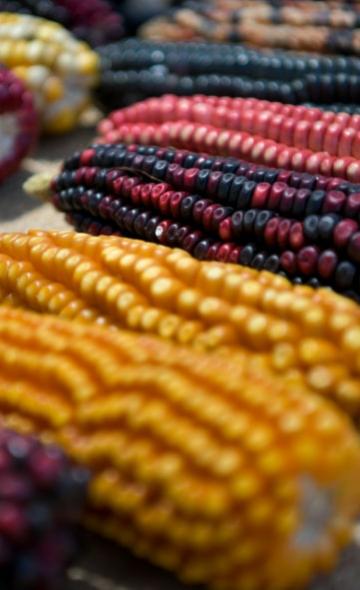
Food is a crucial aspect of a society's culture and history. In the case of pre-Hispanic Peru, pre-Columbian populations ...
To receive new news.
During four days, specialists, researchers, and more, met to discuss research topics, editorial projects, cataloging, conservation and perspectives on archeology.
Four roundtables were held during the VII International Archeology Colloquium, one of the events of the year most anticipated by archaeologists, cultural managers, specialists, students and more. On this occasion, due to the COVID-19 pandemic, the meeting was held virtually, through the Zoom platform, and through the social media of the El Brujo Archaeological Complex.
The main objective of Wiese Foundation, when organizing this edition, was that the attendees could understand and recognize the efforts of other institutions committed to the archaeological cultural heritage, learn about the lines of contribution with the spaces and projects linked to it and be informed of the initiatives that are being executed and those planned for the future.
Research: topic of the first day of the Colloquium
On the first day of the VII International Archeology Colloquium, a dialogue was held among experts on the role of research on the archaeological heritage in society, as well as the challenges it faces.
Wiese Foundation started off by sharing its experience and its main learnings when managing what was the first research project, financed through the Works-for-Taxes mechanism. The purpose of this was to promote more similar projects, under this new modality in the sector and, thus, contribute to the development of archaeological sites.
María Belén Gómez de la Torre, general director of Immovable Archaeological Heritage at the Ministry of Culture of Peru, also shared an overview of the archaeological research carried out in recent years at the national level, reflecting that, despite the significant decrease in the number of projects because of the pandemic, those that prevail are on a larger scale than those executed in previous years.
For his part, Carlos del Águila, director of the General Directorate of Museums of the Ministry of Culture of Peru, pointed out that the goal of guarding archaeological collections should be associated with their use as a generator of memory. Also, he warned about the growing gap that exists in carrying out field research vis-à-vis the study of existing collections.
Finally, Gabriel Prieto, director of the Huanchaco Archaeological Project, recalled that archaeological research is not centered on extraordinary finds, but, rather, on the questions that are asked about the objects found.
Cataloging: a great challenge for the sector
On the second day of the VII International Archeology Colloquium, it was concluded that the process of digital recording of archaeological collections was, and still is, a challenge. Given this, the panel spoke about the efforts made by the sector around the cataloging of the objects and editorial projects linked to the heritage.
On this issue, Lucy Ralph and Gabriela Bertone, from the British Council, shared the results of the project to adapt Spectrum 5.0, a set of well-used and applied standards for the comprehensive management of collections in the United Kingdom, for its use in the Peruvian context.
For her part, María del Pilar Riofrío, director of Mucen, the museum of the Central Reserve Bank of Peru, told about the work that is being carried out there in terms of digital cataloging, and how these efforts have been fundamental in the preservation and strengthening of the link of the museum with its audiences, during the pandemic.
Furthermore, the renowned archaeologist, Cecilia Pardo, who is curating the exhibition of the Bicentennial of Peru that will be presented this year at the British Museum, explained how priorities in museums ceased to be centered on the objects in order to begin to listen to the public. According to her, to this end, it is essential to be able to count on the support of young people who are trained and specialized in the various communication areas of these venues.
Finally, Imelda Vega-Centeno from the Bartolomé de las Casas Center, valued the importance of archeology in the editorial process and effort, since, based on it, researchers support their studies as a fundamental area to contribute knowledge.
Conservation of the Heritage
It was fundamental to know the experiences of those who are in charge of the custody of the archaeological complexes in the country, and Wiese Foundation, at the time of organizing the VII International Archeology Colloquium, took it into account. Hence, the third date of the meeting was held with the attendance of important figures around this issue.
The one who took the floor was José Bastante, director of Machu Picchu. Bearing on his shoulders the responsibility for the conservation of one of the most famous wonders of the world, he reinforced the idea that cultural heritage and tourism should not be in permanent struggle, and that a balance must be sought that allows growth, but with clear conservation conditions.
For his part, Edgar Bracamonte, from the Museum of Royal Tombs of Sipán, highlighted the role played by the curator's work on this issue. He outlined the professional behind this task, who must be someone fully involved in the comprehensive management of the collections, aside from indicating that inter-institutional alliances are so necessary, as is the creation of more public and private competitive funds.
Marta Zegarra, vice president and executive director of the World Monuments Fund (WMF) and Vanessa Wagner, cultural specialist of the United States Embassy, ended the day presenting all the financing opportunities through grant funds, offered by their respective institutions, as well as their evaluation criteria.
Closing of the Colloquium
At the end of this activity, Ingrid Claudet, general manager of Wiese Foundation, made a synthesis of what was experienced during the four days of the event, thanked all the attendees and invited them to participate in the eighth edition of the next International Archeology Colloquium, which will also be organized by the Foundation.
“When we selected the speakers for this table, we thought of three personalities, whose professional careers were closely linked to Peruvian archaeological sites, but from different standpoints, so that they could provide us with an interesting perspective that, on the whole, would be as comprehensive as possible, on what would be the 'post-pandemic' development of these spaces", she said.
After that, the general manager of Wiese Foundation was the moderator of the last panel of the Colloquium, where the speakers spoke about the prospects for the future of archaeological sites.
Juan Pablo de la Puente, a lawyer specializing in Cultural Heritage, spoke about the limits that exist in the regulatory framework for the exercise of the cultural rights of the population, emphasizing a "structural change in the legal assignment of the roles of the State" towards the sector.
Gabriel Prieto, director of the Huanchaco Archaeological Project, highlighted the work of educators, who play an important role. In addition, he made a call to the Ministry of Culture in order to "create the conditions for archaeological projects to develop and continue to be the backbone of research in Peru."
Pedro Pablo Alayza, president of the Association of Museums of Peru, considered that the archaeological activity executed and administered by the State should not be alien to the support of the private sector, in order to allow the correct functioning of these spaces in favor of education and the preservation of culture.
Finally, moreover, he valued the efforts of Wiese Foundation in its support for sustainability in archaeological matters through the Colloquiums and the work that has been carried out in El Brujo.
The International Archeology Colloquium is an event organized annually by the Wiese Foundation that brings together specialists, researchers, managers and representatives of various institutions in Peru and the world, to address issues related to the cultural heritage.
Traditionally, the event used to be held in person in the La Libertad region, for two full days that culminated with a visit to the El Brujo Archaeological Complex, as well as activities in the neighboring community of Magdalena de Cao. But, since 2020, as a result of the pandemic caused by COVID-19, the Colloquium is being conducted free of charge and virtually.
Researchers , outstanding news


